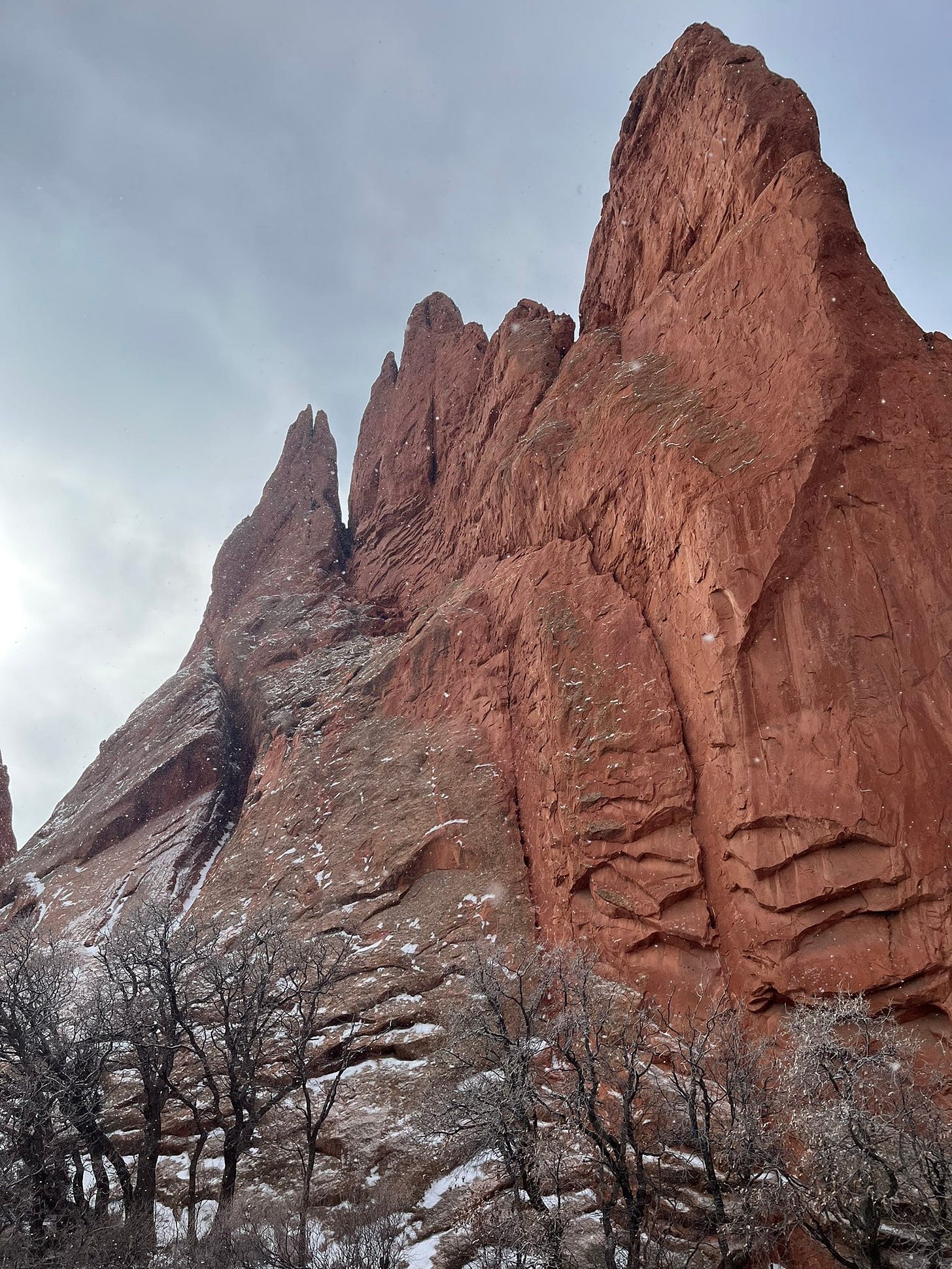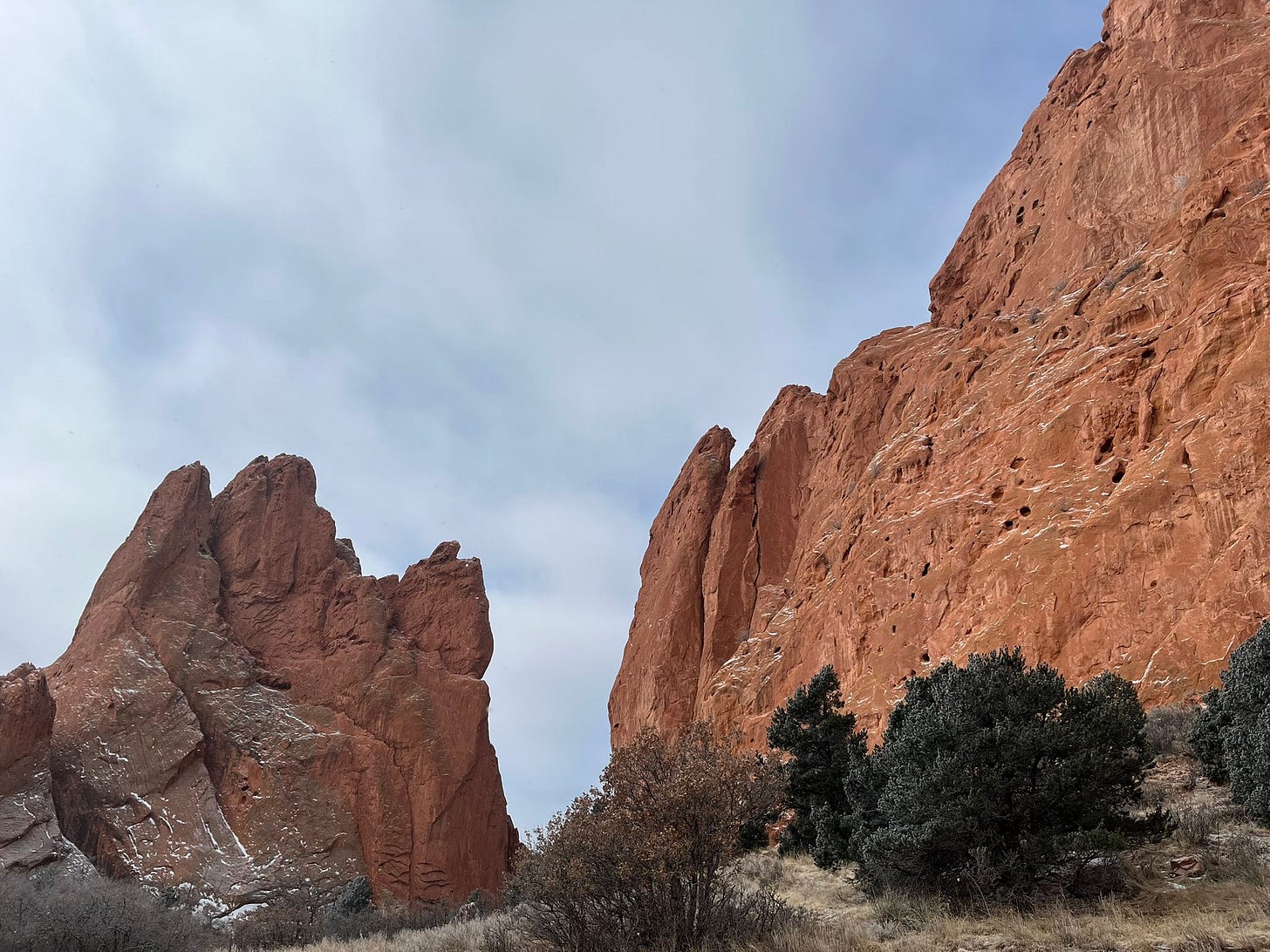Dear friends,
Thank you for your patience as my regularity in these dispatches has wobbled over the past month or so. Several unavoidable demands on my time have simply reduced the hours I typically glean in a week in order to bring some good measure of thoughtfulness and care here to you. As I do not ever want this writing effort to become “sounding brass” or “tinkling cymbal” territory (First Letter to the Corinthians, 13:1), if I can’t bring love to the writing of The Rose Fire, it undoes the project. Anyway—onward.
First, a few pictures I took on a recent business trip to Colorado Springs. The “Garden of the Gods” is right in the city, and familiar almost to the point of eye-rolling to the locals. But I have not yet tired of going there, and believe that I’ve made a visit each of the four or five times I have been in the Springs. This time, early on last Thursday morning, the park was deserted, fifteen degrees and snowing lightly with dry, feathery crystals that seemed like spun sugar. It was absolutely silent, to the point of eerieness. I walked briskly for a mile or two, until I was shivering and my breath lightly froze on my moustache.
As I was leaving the park, a herd of about twenty Bighorn sheep were browsing in the absolute silence. Leaving them plenty of space (as reports say their heads are even harder than mine), I took a few pictures. The feeling of a moment is what photos can never quite get—in this case, the absolute peace of it. Something about it impressed me deeply.
The symbol of the sheep/goat is important to me (having lived with sheep as a boy, having been born with the sun in the constellation Capricornus, having the last name of Pastor, meaning “shepherd”), and the assurance and sense of rest that was the “feeling” of the herd, warm in their wool on the frigid morning, and surrounded by their comestibles of grass and yucca was very strong and gentle. It was one of those moments that seem to go into you as a place in time/space to which you could close your eyes and return at any moment, being, in its nature, eternal.
Today I have a very short poem for you—an epigram. After sharing it, I will give a few personal thoughts on the tradition and value of the epigram, and then move into some deeper thoughts on the core of the piece for my (very kind and patient!) paid subscribers.
Ecclesiastes on the Beach The Sun just does this; over and over. So the sand flea. So the plover.
That’s it.
Now a couple thoughts on the form. The “epigram” is not to be confused with either the “epigraph” or the “epitaph.” To keep the three of them straight, here is a little rhyme I made up:
‘Graph is the words at the top of the page,
‘Taph goes on gravestones, under your age,
‘Gram is a poem, witty and brief,
And “Epi” starts all of them, just to cause grief. Not all short poetry is epigrammatic, of course. The key is the presentation of a single thought, usually witty, often funny, and always with an element of sharpness to it. Epigrams are like ginger cookies. They’re spicy. They should snap. You should always want another one.
Keep reading with a 7-day free trial
Subscribe to THE ROSE FIRE to keep reading this post and get 7 days of free access to the full post archives.










